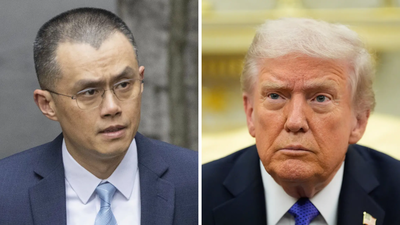Trump’s sanctions on Russian oil firms: Will India’s state-run refiners continue imports? Why experts see limited impact

India’s state-run oil refiners are expected to continue importing Russian crude through intermediary traders despite fresh US sanctions on Rosneft PJSC and Lukoil PJSC, two of Russia’s largest oil companies, industry sources told PTI. The sanctions target firms accused of helping fund the Kremlin’s “war machine” in Ukraine.The sanctions, announced this week, cover companies that together export around 3.1 million barrels of oil per day, with Rosneft alone responsible for 6 per cent of global oil output and nearly half of Russia’s production.Sources told PTI that public-sector units (PSUs) are assessing compliance risks but are unlikely to halt Russian crude flows immediately, as they purchase almost all of their supplies from independent traders — mostly European — who are not under US sanctions. The aim is to ensure compliance with US sanctions and prevent any direct imports from Rosneft or Lukoil.
How PSUs procure Russian crude
State-owned refiners such as Indian Oil Corporation (IOC), Bharat Petroleum Corporation Ltd (BPCL), Hindustan Petroleum Corporation Ltd (HPCL), Mangalore Refinery and Petrochemicals Ltd (MRPL), and HPCL-Mittal Energy Ltd (HMEL) do not have term or fixed-quantity contracts with either Rosneft or Lukoil, reported PTI. Instead, they buy Russian oil through tenders where traders based in Europe, Dubai, or Singapore participate.“These traders have not been sanctioned by the US,” a source said, adding that European Union sanctions too had not targeted these intermediaries. “Even if some traders shy away from picking Russian volumes, Moscow is capable of overnight resurrecting new ones with Dubai registration,” the source added.Industry participants believe the latest US measures may have limited impact on Russian crude flows. “The measures by the Trump administration are ‘half-hearted’,” one source involved in the business said, as quoted by PTI. “For months, US President Donald Trump has resisted pressure from US lawmakers to impose energy sanctions and even now the ones who do bulk of the trade are out of its net.”Another industry insider said markets appeared unconvinced. “If sanctions were so impregnable, international oil prices would have jumped at least $5–10 per barrel on news of such large volumes going out of the market. Instead what we saw was just a $2 per barrel increase, implying the market believes not all of the oil that is exported from Russia is going anywhere.”
Private sector faces challenges
In the private sector, Reliance Industries Ltd (RIL) — India’s largest buyer of Russian crude — may face challenges. The company directly buys oil from Rosneft and accounts for roughly half of India’s 1.7 million barrels per day of imports from Russia.Reliance had signed a 25-year term deal with Rosneft in December 2024 to import up to 500,000 barrels per day. With Rosneft now under sanctions, the company may have to recalibrate its sourcing strategy to manage exposure.Nayara Energy, in which Rosneft holds a 49.13 per cent stake, is another major private-sector buyer of Russian oil. The Vadinar-based refiner has already been sanctioned by the European Union and may also need to adjust its purchases, sources said.Before 2022, India imported very little oil from Russia, relying mainly on supplies from the Middle East. This changed after Russia’s invasion of Ukraine and the G7 nations’ introduction of a $60-per-barrel price cap, aimed at limiting Russia’s revenue while keeping global oil supplies stable.The Trump administration’s latest measures specifically target shipments from Russia’s major oil suppliers, marking a more significant move compared to previous US actions.






